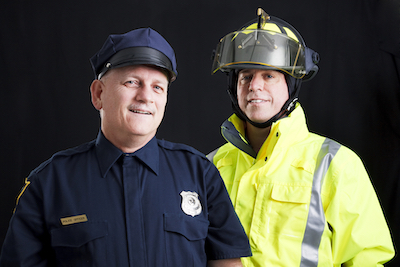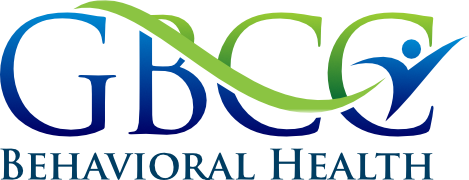First responders do critically important work for their communities and often find themselves in traumatic situations or experiencing secondhand trauma. It is not uncommon for first responders to experience mental health issues as a result of the work that they do.

However, many avoid seeking mental health care services because of stigma, lack of resources, or difficulty finding a therapist that specializes in working with first responders. Providing care related to first responder mental health can result in improved quality of life for both the first responders and their families.
Common Mental Health Issues for First Responders
While first responders may experience any number of mental health issues, these types of jobs most often result in the following:
- Post-traumatic stress disorder (PTSD) – Police officers, firefighters, and EMTs, among other first responders, often are present either while a traumatic event is happening or in the direct aftermath. They may witness violent crimes, natural disasters, and situations that put their lives on the line daily. For some, this can result in symptoms of PTSD.
- Depression – First responders do rewarding, yet challenging and sometimes sad, work. Seeing sad outcomes or situations day in and day out can quickly result in depression, especially when you factor in the lack of certainty that accompanies first responder work.
- Anxiety – This disorder can manifest itself as fear of certain tasks, places, or things. Feeling anxious about going to work is common but when it becomes an everyday struggle as a direct result of the work you’re doing, it can become difficult to even consider going.
- Substance use disorder – This disorder often co-occurs with others, and very commonly with the three listed above. People with high-stakes jobs or who regularly experience extreme stress may turn to alcohol or drugs to try to relax and take the edge off. Unfortunately, this can manifest into addiction more quickly than most anticipate.
If you are a first responder or have a loved one who is and start to notice signs of one of these mental health disorders (difficulty sleeping, excessive sleeping, not enjoying hobbies, spending less time with family, or other behaviors out of the norm), please reach out to someone for help.
Why Specialization in Working with First Responders is Important
First responders need to know that whatever they say in a therapy session is confidential and doesn’t affect their fitness for duty. They need to be able to trust their therapist and know that they have a keen awareness and understanding of what first responders see and do.
Opening up to a therapist about what’s happening at home or at work can help first responders better work through the things that are bothering them or situations that have resulted in mental health disorders.
At GBCC Counseling Centers, our therapists guarantee quality confidential care. Additionally, we are in-network with most major insurance companies to make first responder mental health care as accessible as possible.
If you would like to set up an appointment or have questions, please contact us online or give us a call at 410.760.9079.
